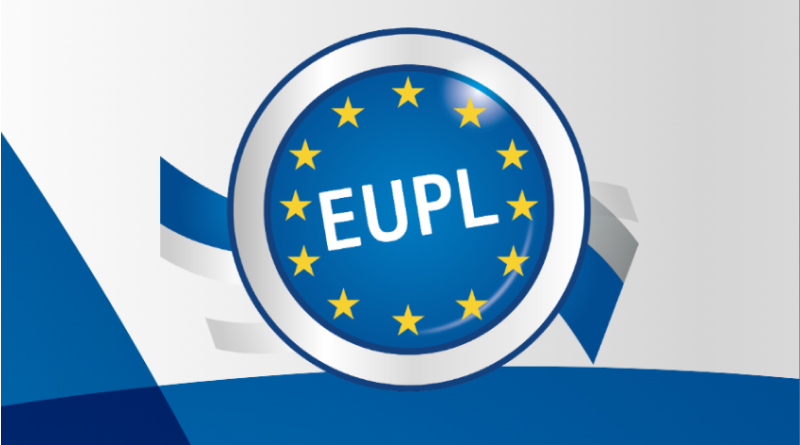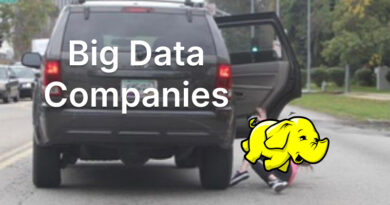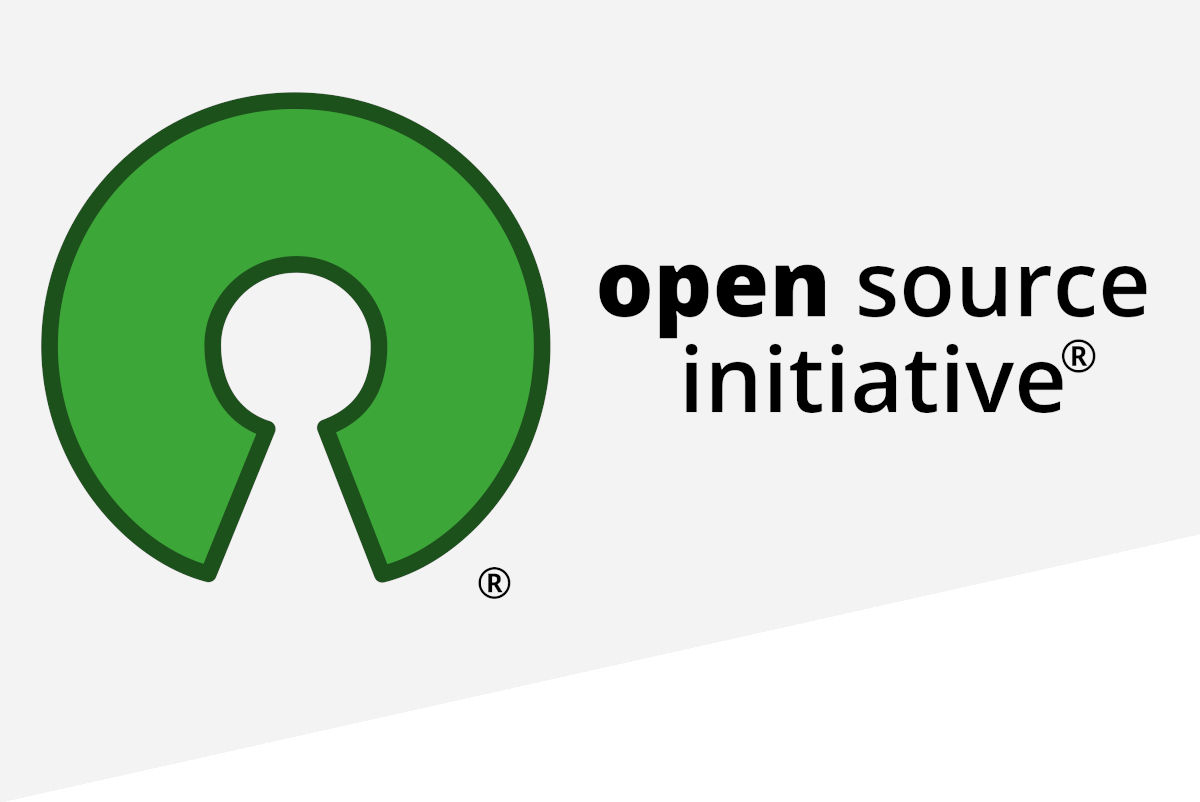The EU Public Licence and Apache 2.0
The European Union Public License (EUPL) is a free software licence created at the initiative of the European Commission which aims to “widely distribute and promote the use of software owned by the European Commission and other European Institutions under a Free/Open Source License in accordance with the requirements of European legislation”.
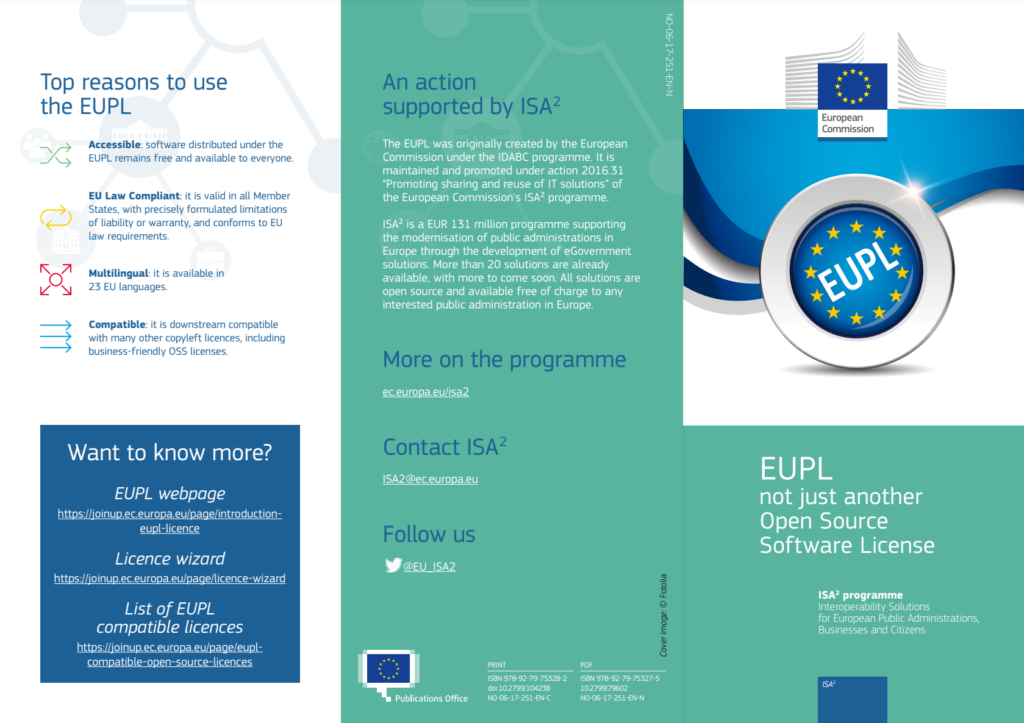
This licence is drafted in such a way as to allow wider use, avoiding appropriation after improvement by third parties (it is a copyleft licence) and without any additional clause preventing wider use. It is mainly intended for public sector administrations in EU countries.
It is currently in version 1.2, which was published in Commission Implementing Decision (EU) 2017/863 of 18 May 2017.
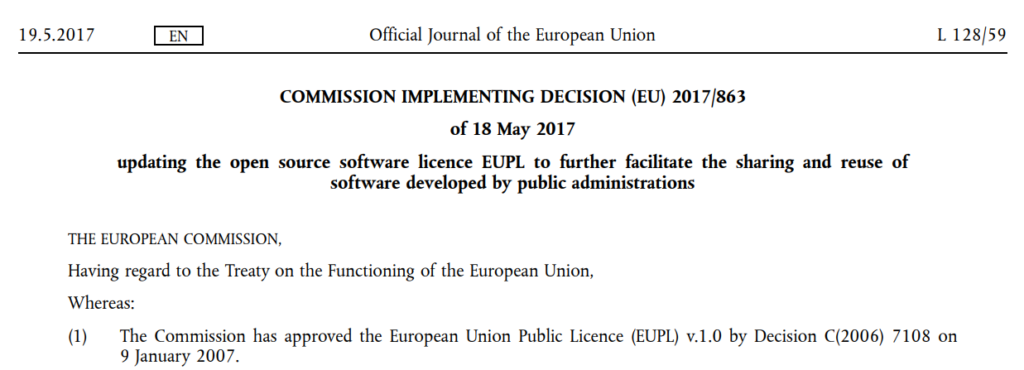
However, the EUPL is drafted in neutral terms so that a wider use can be envisaged. Furthermore, the distribution of software must avoid exclusive appropriation of the software even after its improvement by a third party (hence the EUPL is a “copyleft” licence). Although the potential users of the European institutions’ software are mostly other public sector administrations, the EUPL does not contain any clause restricting its wider use.
Relationship with Apache 2
The Apache licence is a type of permissive free software licence, created by the Apache Software Foundation. Since 2004 it has been in its 2.0 version, with previous versions such as 1.0 and 1.1.

With respect to the EUPL, nothing in Apache versions 1.1 and 2.0 prohibits relicensing a larger work under this licence. In the case of version 1.1, there are certain requirements – such as the existence of certain prohibitions on the use of the “Apache” trademark – but they are not considered restrictions added by the EUPL licensor; they are inherited from the original Apache licence.
These requirements therefore do not affect the essential freedoms of F/OSS, and are in conformity and compatible with Article 5 of the EUPL.
Header Image: Publications Office of the European Union.

